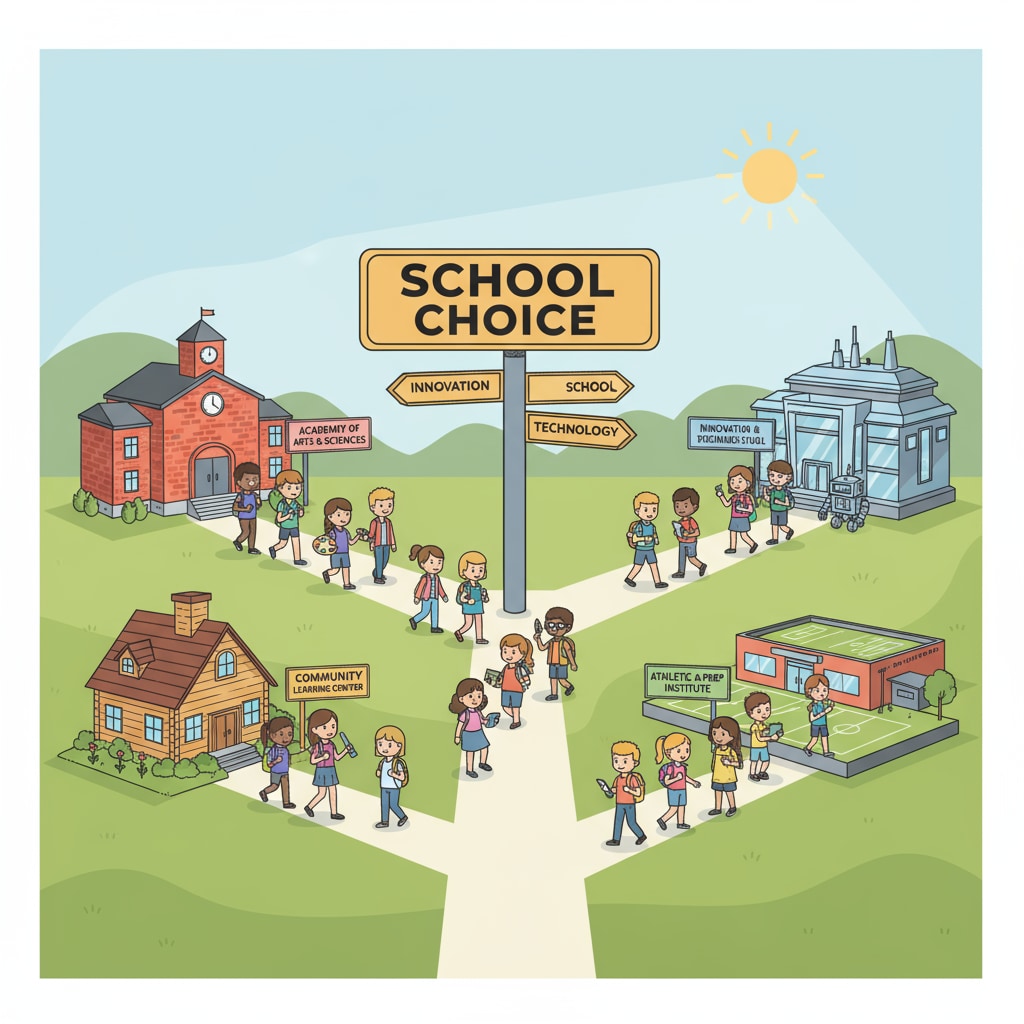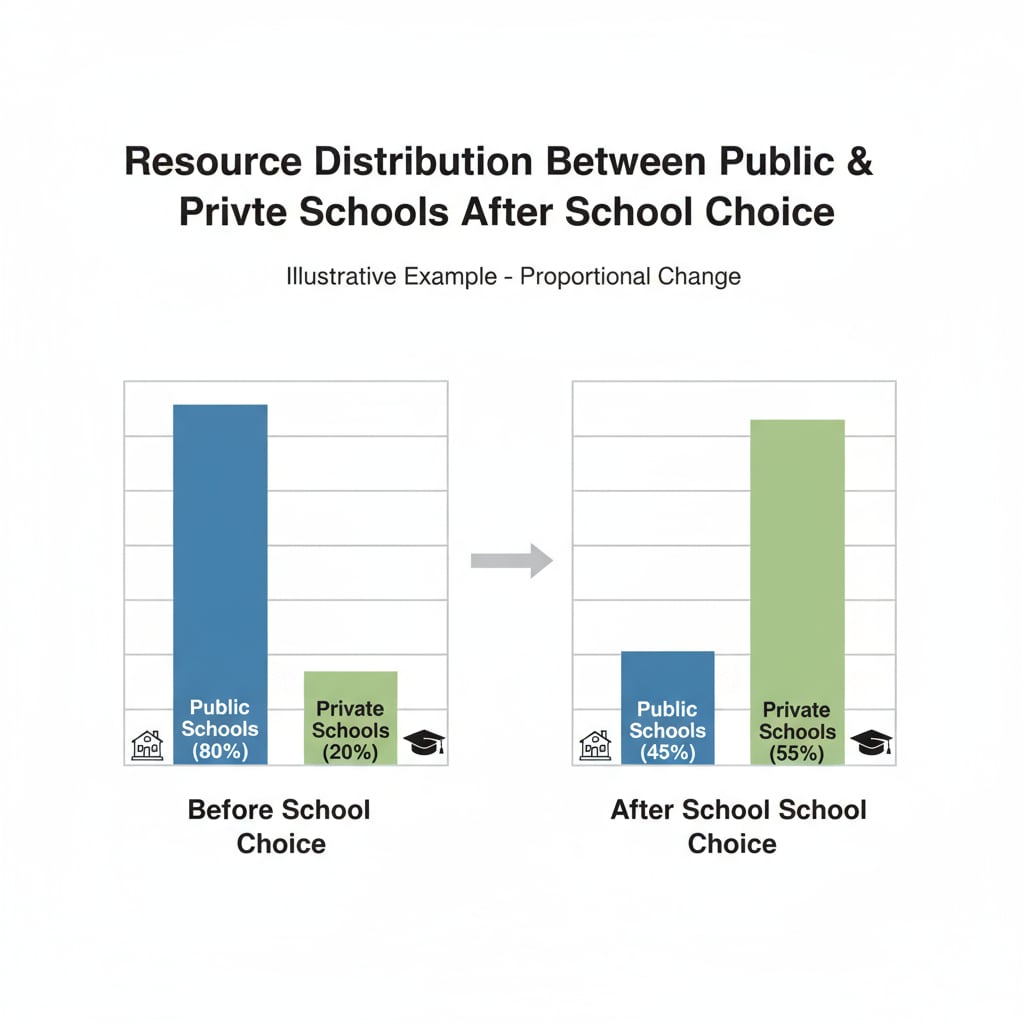In the landscape of education policy, the concept of school choice has been a hotly debated topic, especially among conservatives. School choice, which aims to give families more options in selecting schools for their children, has been met with a fair share of criticism from the conservative camp. This article will delve into the reasons behind these critiques and explore how conservatives perceive the potential threats it poses to various aspects of the educational and social fabric.

The Threat to the Public Education System
One of the primary concerns of conservatives regarding school choice plans is the potential harm it could inflict on the public education system. Public schools have long been the cornerstone of American education, providing equal opportunities for all students regardless of their background. However, school choice initiatives, such as voucher programs and charter schools, may siphon off resources from public schools. For example, when students transfer to private or charter schools using vouchers, the funding that would have otherwise gone to their original public schools follows them. As a result, public schools may be left with fewer resources, which could lead to a decline in the quality of education they can offer. According to Britannica’s entry on education in the United States, the balance of resources within the public education system is crucial for maintaining a high standard of education for all.

Impact on Community Cohesion
Conservatives also worry about the impact of school choice on community cohesion. Traditionally, neighborhood public schools have served as a unifying force within communities. They bring together children from different families and backgrounds, fostering a sense of community and shared values. School choice, however, can disrupt this dynamic. When families are given the freedom to choose schools outside of their neighborhoods, it can lead to a more fragmented educational landscape. Children may be separated from their local peers, and the sense of community that was built around neighborhood schools may erode. As noted on Wikipedia’s education policy page, the role of schools in building community is an important aspect of educational theory.
Another aspect is that school choice may lead to self – segregation. Families may choose schools based on various factors such as academic performance, teaching methods, or even the demographic makeup of the student body. This could result in schools becoming more homogeneous, which goes against the idea of a diverse and inclusive community. For example, if a particular school becomes known for a certain type of curriculum or a specific student demographic, it may attract families with similar preferences, leaving other schools with a more limited and perhaps less diverse student population.
Readability guidance: In this section, we’ve explored how school choice can disrupt community cohesion. We’ve presented two main points – the disruption of neighborhood – based school communities and the potential for self – segregation. By using examples and external references, we aim to make these complex ideas more accessible.
Challenges to Traditional Family Values
Some conservatives believe that school choice plans can pose challenges to traditional family values. In a traditional view, the family unit and local community play a significant role in a child’s upbringing and education. Public schools, as part of the local community, are seen as an extension of these values. School choice, on the other hand, may shift the focus away from the local community and family influence. For instance, if families are constantly searching for the “best” school across a wide area, it can put additional stress on the family unit. Parents may have to commute longer distances to drop off and pick up their children, which can disrupt family time and the traditional family structure.
Moreover, the plethora of choices available in school choice plans can be overwhelming for families. Instead of relying on the established local educational institutions and the values they represent, families may be forced to make complex decisions about their children’s education. This can lead to a sense of confusion and uncertainty, which may not be conducive to instilling traditional family values in children. As conservatives often emphasize the importance of stability and continuity in a child’s life, the disruptions caused by school choice are a cause for concern.
Readability guidance: Here, we’ve detailed how school choice might conflict with traditional family values. We’ve used examples of increased family stress and decision – making overload to illustrate these points. These are important considerations from a conservative perspective on education policy.
In conclusion, while school choice plans may seem appealing in terms of providing more options for families, conservatives have valid concerns about their potential negative impacts. The threats to the public education system, community cohesion, and traditional family values cannot be overlooked. As the debate around school choice continues, it is essential to carefully weigh these factors to ensure that any education policy promotes the overall well – being of students, families, and communities.


